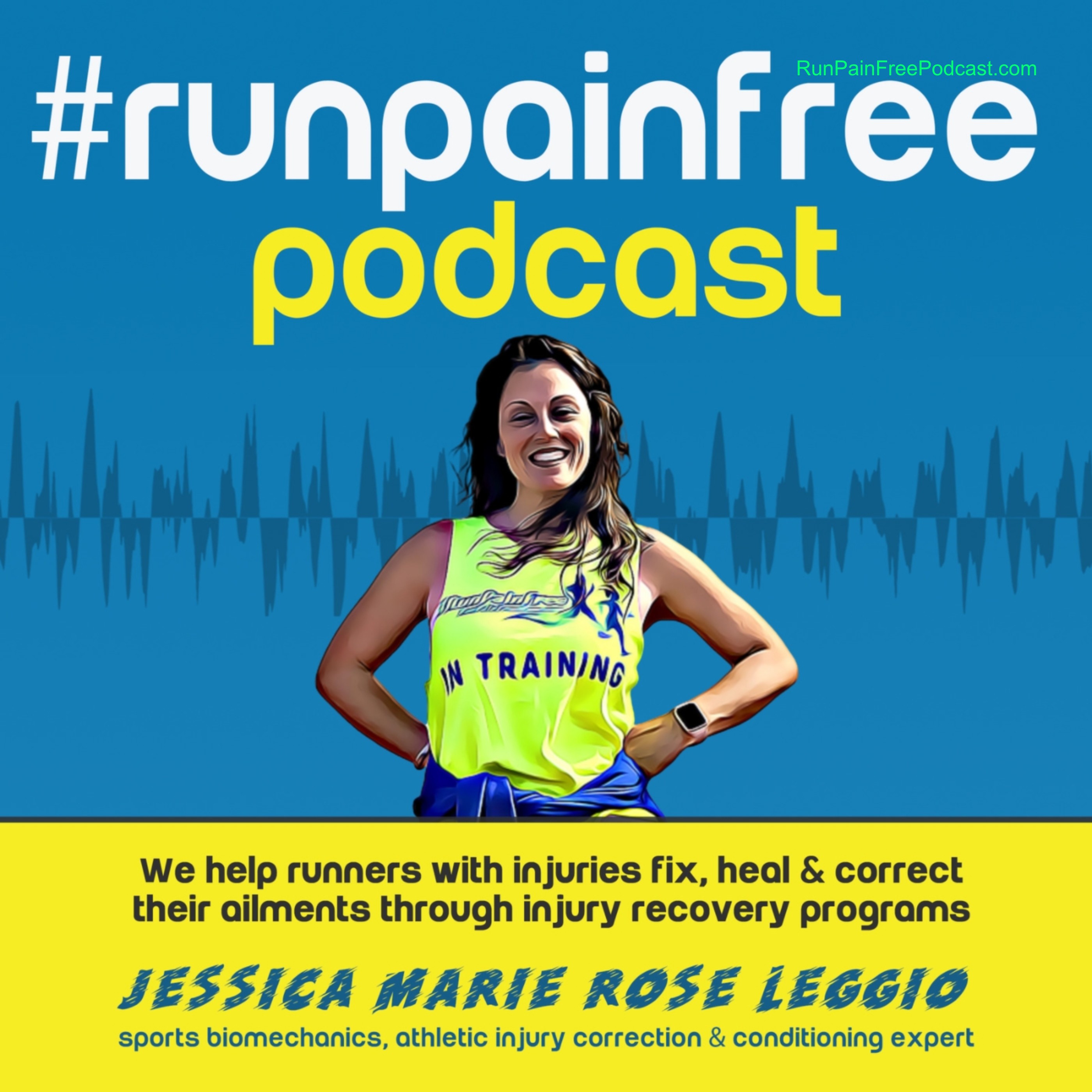🎧 The Science of Good Rest 😴 and Recovery (with Nick Littlehales)
Description
Welcome to the #RunPainFree Podcast! In today's episode, Coach Jessica Marie Rose Leggio speaks with leading elite sport sleep coach Nick Littlehales. It sounds like a unique professional title, well, that's because he invented it!
Nick's career spans over 20 years. He has been a true innovator in bridging the divide between sleep science and creating actionable steps that athletes can implement to improve their rest and recovery. He is also the author of the international bestselling book "Sleep: The Myth of 8 hours, the Power of Naps, and the New Plan to Recharge Your Body and Mind."
In this episode, he shares his knowledge and techniques underpinning his R90 Technique to increase your rest and performance. If you have been basing your recovery on the adage of getting eight hours every night, this episode is going to give you something to sleep on.
Step 1: Circadian rhythms
The first thing you need to do to improve your sleep is developing your understanding of circadian rhythms. Circadian rhythms are physical, mental, and behavioral changes that follow a 24-hour cycle. Like animals and plants, we humans (yes, it turns out we are animals after all!) also respond to changes in daylight.
Our melatonin increases in darkness and is suppressed in daylight, whereas serotonin rises during the daytime. Melatonin is most known for its role as a sleep hormone, and serotonin is the "feel good" hormone.
So, in the world of COVID lockdowns, make sure you get outdoors every day; it will do more for you than slamming another coffee. In the evening, getting off your phone and computer and avoiding blue light will help you sleep.
Step 2: Chronotypes.
Chronotypes relate to your natural inclination to sleep at a particular time. Optimizing your approach to sleep relates to understanding your chronotype. So, the question is, are you an early bird or a night owl?
While you can't deliberately change your chronotype, it is good to be aware of your pattern and know that it shifts over your lifetime. That's why that lazy teenager who can't get out of bed in the morning ends up waking up at the crack of dawn in their 80s. If you want to achieve prime performance, base your sleep on your body's natural rhythm.
Step 3: Think about sleep in cycles rather than hours.
Alert! This information is the golden nugget of Nick's R90 Technique.
Start thinking about your sleep in terms of the number of cycles throughout the week instead of just getting eight hours a night. If you don't achieve optimum sleep one night, that okay; like one day rolls into the other, you too can move your recovery into the next.
The eight hours a night idea is an outcome of the modern world. Before that, humans slept several times throughout 24 hours or were polyphasic sleepers rather than monophasic.
On any day, you want to aim to hit five 90 minute cycles. Your sleep cycle includes: dosing off, light sleep, deep sleep, and REM – you need all of these to gain the restorative powers of sleep.
How you split that up can be determined by you. If you are someone who crashes mid-afternoon, take that nap, it all counts. Nick's book highlights that naps are magical for your wellbeing. But the key is to hit 90 minutes, as this completes an entire sleep cycle.
Step 4: Pre and post-sleep routines.
To aid your ability to dose off into neverland and hit the day running, Nick emphasizes the importance of pre and post-sleep routines. You are developing a standard time to go to bed, and waking up will help in this regard. But don't beat yourself up if you have a sleep-in after a long week; you're human after all.
Pre-sleep routines may include:
Getting off your phone.
Lowering the temperature in your bedroom.
Dimming the lights.
Writing down your to-do list for the next day.
Post-sleep routines can include: avoiding technology, aka don't look at your phone first thin
More Episodes
Episode Summary:
In this episode, Coach Jessica dives deep into the often misunderstood and misdiagnosed condition known as runner's knee. She debunks common myths, explains why knee pain is rarely about the knee itself, and shares insights on addressing the root causes of the pain. This episode...
Published 06/14/24
Published 06/14/24
Discover the truth behind building bone density and why weightlifting alone isn't the answer. Join us as we delve into functional fitness and debunk common myths on the #RunPainFree Podcast.
🔹 In This Episode:
Debunking the misconception that weightlifting is the sole solution for bone...
Published 03/23/24


